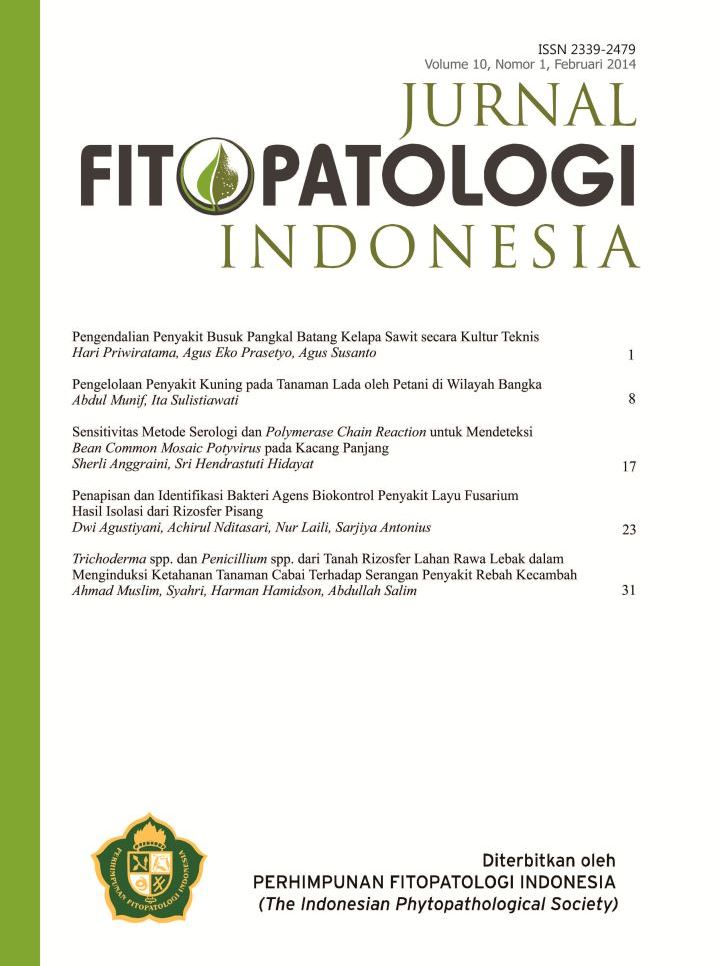Pengelolaan Penyakit Kuning pada Tanaman Lada oleh Petani di Wilayah Bangka
Abstract
Yellow disease caused by plant-parasitic nematodes are still a major problem on pepper production area in Bangka region. Significant yield losses occurred due to yellow disease. The objective of this research was to survey the yellow disease incidence and to study farmer’s knowledge, attitude and practices on the management of yellow disease of black pepper in Bangka district, Central Bangka and South Bangka. This study consisted of a survey of the incidence of yellow disease in the field and interviews to the farmers. The result showed that the yellow disease had infected nearly all of black pepper fields in the areas with incidence of as much as 20–60%. Almost all of the respondents reported that the yellow disease was the major disease of black pepper in Bangka region. Farmers’ level of knowledge about the causal of disease, symptoms, ecology and control methods of the yellow disease are still very limited. Various control measures have been done by farmers to combat the disease, especially by removing and burning the infected plants or by application of lime. A few farmers did not even controlling the disease. Pesticides have been used by a few farmers to control the yellow disease, but the application of pesticide does not in line with integrated pest management principles.
Downloads
Authors who publish in Jurnal Fitopatologi Indonesia agree to the following terms:
1. Authors retain copyright and grant the journal right of first publication with the work simultaneously licensed under a Creative Commons Attribution License (CC BY-SA) that allows others to share the work with an acknowledgement of the work's authorship and initial publication in this journal.
2. Authors are able to enter into separate, additional contractual arrangements for the non-exclusive distribution of the journal's published version of the work (e.g., post it to an institutional repository), with an acknowledgement of its initial publication in this journal.
3. Authors are permitted and encouraged to post their work online (e.g., in institutional repositories or on their website) prior to and during the submission process, as it can lead to productive exchanges, as well as earlier and greater citation of published work.





